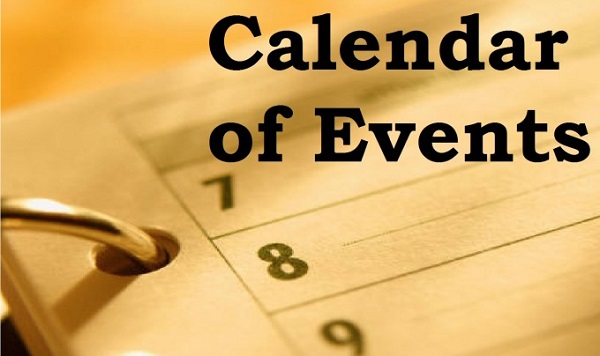Web Marketing: Events Will Help You, Not Weigh You Down
 An error which you absolutely should not take a chance on is to underestimate the force of events, especially those linked to your neighborhood, and how fundamental it can be to the promotion of your site.
An error which you absolutely should not take a chance on is to underestimate the force of events, especially those linked to your neighborhood, and how fundamental it can be to the promotion of your site.
Creating a specific section within your website to tracks events helps potential clients, providing lots of details and a fixed schedule—it’s also a great way of tourism online marketing, through which you have the chance to transmit, on your own website, a lot of targeted traffic, which, consequently, helps grow your bookings.
You should absolutely rid yourself of the bias, which may unfortunately be deeply-rooted, that adding an events section will mean yet another weight to supervise. We’re convinced that an accurate optimization of this page can have incredibly positive results.
Just enough to think of the classic indecisive user researching for a vacation idea, talking about a particular event, maybe one linked to your neighborhood, a fair, festival, etc—you can represent the fuse ready to activate the reservation. And don’t forget the importance this can have from the viewpoint of brand reputation. You’ll give the impression of having a live, active site, of being people that are up-to-date. As far as the SEO side of things, it’s useless to reiterate how much weight search engines put on always having a constant flow of new, fresh content—today, it has become fundamental for positioning.
We are so certain of the importance of the events section on a hotel website that we remind you not to limit yourselves solely to adding a constant stream of similar pages—our recommendation is to devise a proper strategy.
You can outline a proper editorial plan, with a precise calendar, deciding if you will specialize in hoteliers and hotels or a variety of topics. It’s important that you know how to write fairly well and that you’ll be able to produce engaging content.
Make sure you publish the event information with enough lead time, first to be indexed, second to give potential users enough time to organize their trip. Always try to identify the events to insert into the calendar based on your reference target—if, for example, you are mainly frequented by business travelers, concentrate on exhibitions and trade shows.
Always give all of the useful information, those looking for specific news surely want to know who, what, when, where. Once you’ve done that, aim to expand the news with a detailed description and details that will make the reader want to participate.
Always insert the proper keywords in order to achieve the proper positioning across all of the possible search instruments, and, furthermore, one of the principal objectives, insert a title, meta-tags, and descriptions that are accurate and don’t exaggerate.
Be clever—it’s true that you’re giving information to your users, but it’s also true that you are your website, so there shouldn’t be anything bad to discourage your users from booking. Perhaps insert a button well-visible at the end of the article, a fantastic way to create specific packages or special offers—a great way to beat the competition.
If there is a particular event of international caliber, and therefore with great media impact, you can think to address part of your concentrated efforts to a PPC campaign, in which case you should use the article page that talks about the event as your landing page.
Don’t forget, though, that these events can also be a limitless resource of content to add to your various social accounts.
It’s not simple work, and it certainly requires a large undertaking, but we guarantee you that the conversion rate that events will generate for you will really be elevated.

